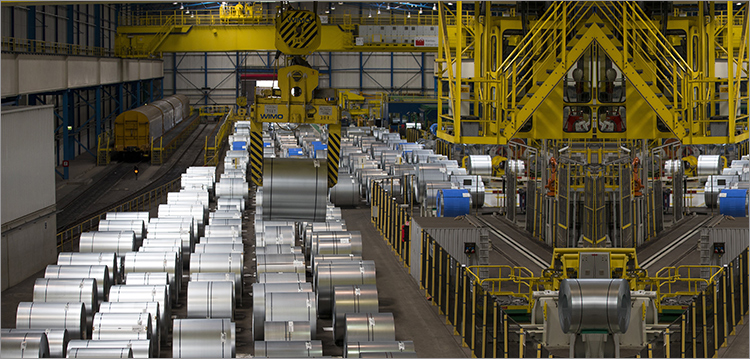
Exempt 2.5% Basic Customs Duty on import of key raw materials Increase Basic Customs Duty on imports of finished stainless-steel flat products to bring at par with carbon steel
The Indian stainless-steel industry has urged the Union government to slash the existing import duties on key raw materials in the upcoming Union Budget 2021-22. In its recommendations to the Ministry of Finance, Indian Stainless Steel Development Association (ISSDA), the apex body representing the domestic industry, has appealed to exempt the 2.5% Basic Customs Duty (BCD) levied while importing key raw materials, including ferro-nickel and stainless steel scrap. Presently, both these raw materials are unavailable in the country, making their import mandatory. ISSDA has also sought abolition of the existing 7.5% import duty on graphite electrodes, a critical component in stainless-steel manufacturing, as they constitute a major share of input cost. Additionally, ISSDA has sought an increase in the import duty on stainless-steel flat products to 12.5%, to bring it at par with carbon steel products, in order to check undue imports. ISSDA asserted that these measures, if undertaken, will not only boost domestic manufacturing but also curb undesired stainless-steel imports, thus spurring the ‘Make in India’ movement.
Mr K K Pahuja, President, ISSDA said, “The Government has set in motion a wave of reforms to boost economic growth and the Indian stainless-steel industry is ready to contribute to the ‘Atmanirbhar Bharat’ vision. This is the optimum time for the government to stop considering essential raw materials as source of revenue and provide stimulus to domestic manufacturing by exempting duties on importing critical raw materials. This step will improve the competitiveness of the domestic industry and in turn, provide impetus to the hard hit MSME segment, which has a 40 % share in the domestic stainless-steel industry. Additionally, undue imports have harmed the domestic industry which is operating at 60% of its capacity and is financially stressed after COVID-19 related disruptions. We request the government to rationalize the duty structure in order to catalyze the revival of this sector that has immense potential to generate additional jobs.”
India continues to be the second largest producer and consumer of stainless-steel in the world. High input costs, coupled with imports from FTA countries, have eroded the global competitiveness of Indian companies. Undeterred by trade challenges, the Indian stainless-steel industry has consistently demonstrated 8-9% growth in the past few years, as compared to about 5% exhibited globally. This growth was made possible due to capacity building and modernization initiatives undertaken over the last 15 years, along with aggressive market development efforts by the industry. The demand for stainless-steel in India is growing at a compound annual growth rate (CAGR) of ~8-9% across a spectrum
of applications. Moreover, a lower per capita consumption of stainless steel at ~2.5 kg against the world average of 6 kg highlights an immense untapped potential for stainless-steel usage in India. Stainless-steel provides sustainable solutions with lower lifecycle costs across diverse applications, such as Public Transport, Buildings & Construction, Process Industries, and Food Processing etc.
About ISSDA: Established in 1989 by leading stainless steel producers, Indian Stainless Steel Development Association (ISSDA) was formed with the explicit objective of diversifying the applications of stainless steel and increasing usage volumes in the country. At the time of inception of ISSDA, the main visible application in daily life was essentially household kitchenware, which has now diversified significantly. Through the focused efforts of ISSDA and its member companies, the widespread and visible use of stainless steel in different walks of life is all too evident, especially in the Architecture, Building & Construction (ABC) and the Automotive, Railway and Transportation (ART) sectors. The technical strength of ISSDA is derived from its close association with the Nickel Institute, the International Stainless Steel Forum (ISSF), and close collaboration with more than 20 stainless steel development associations around the world. As a result of these efforts, India has now emerged as the second largest stainless-steel producer and consumer in the world.






